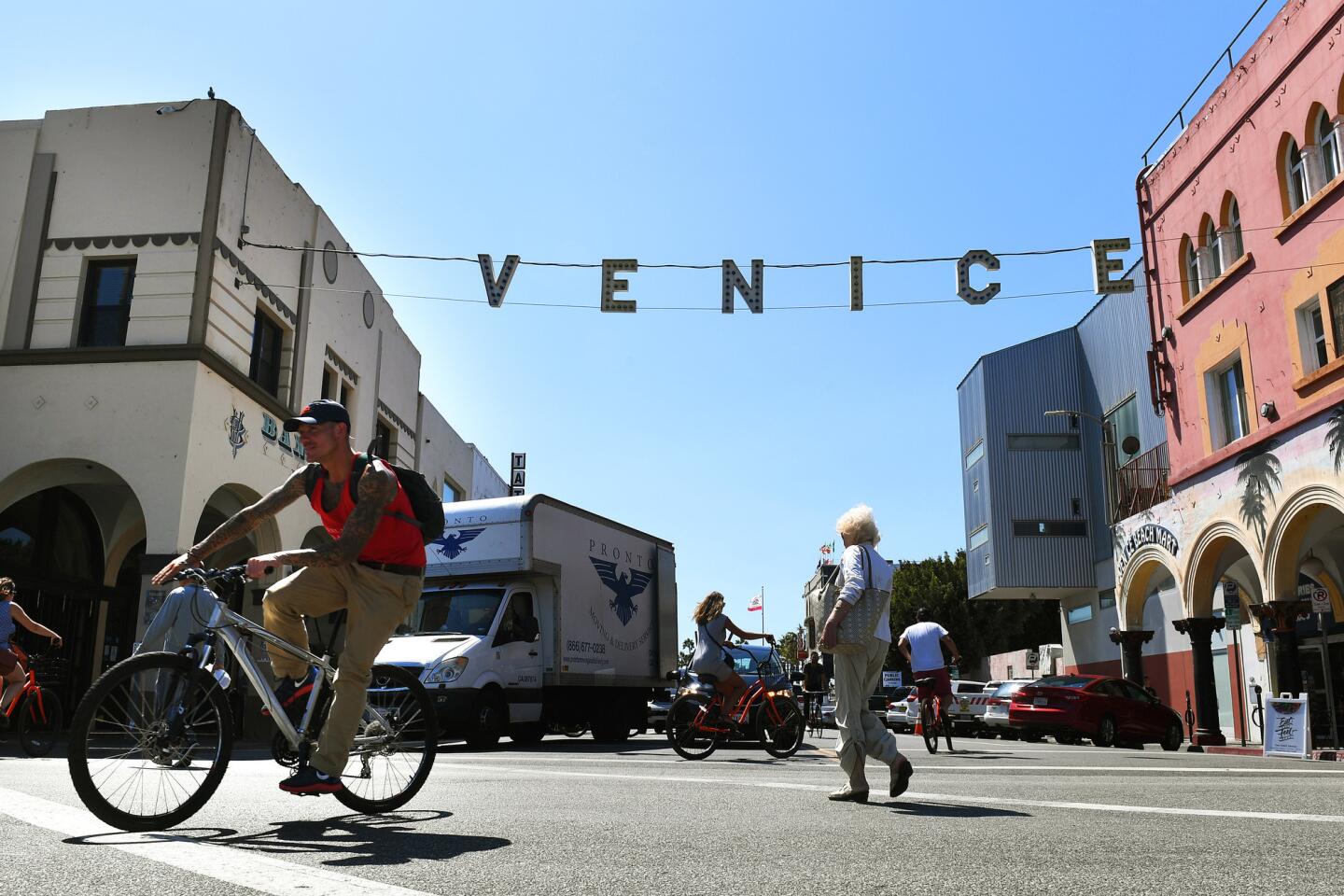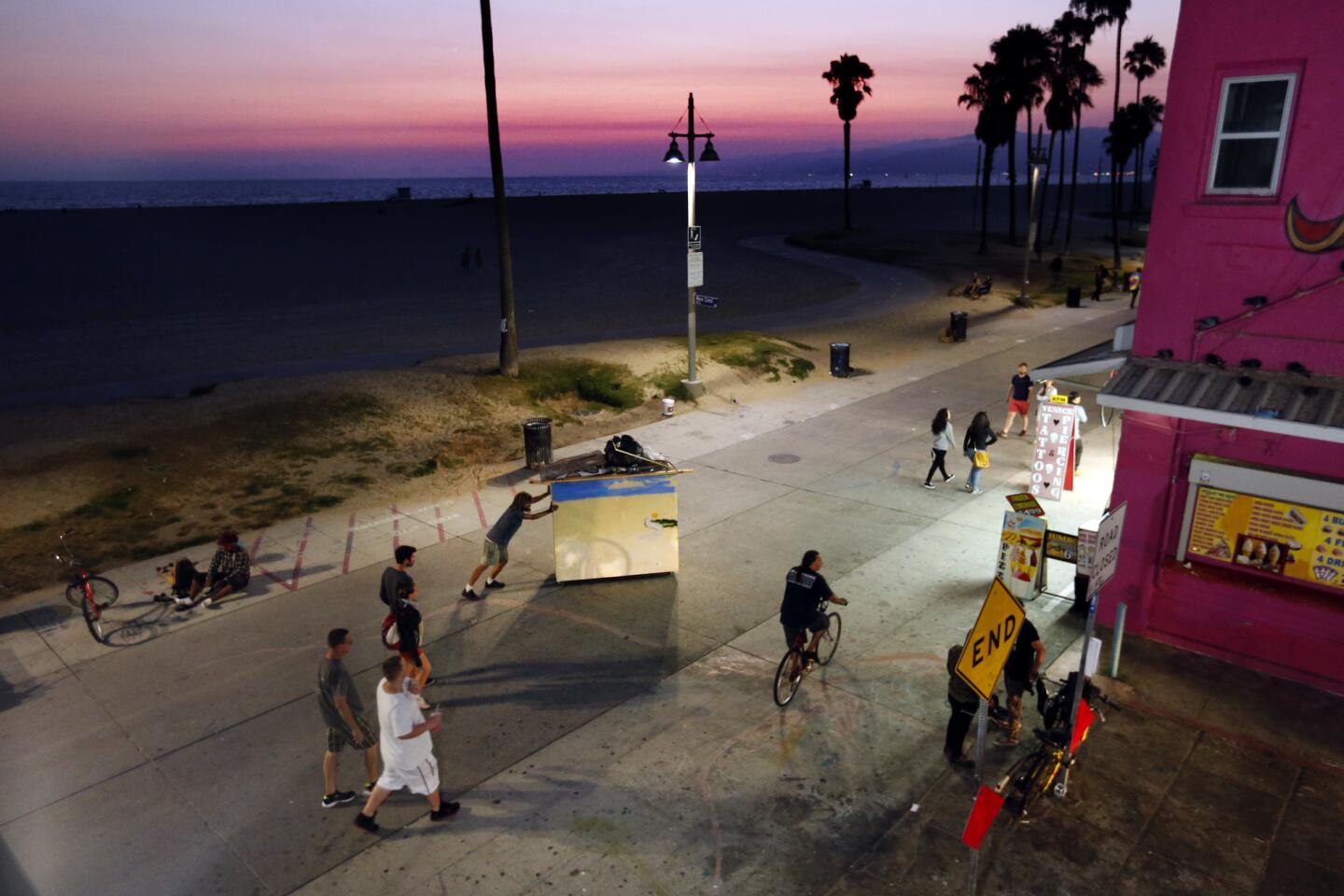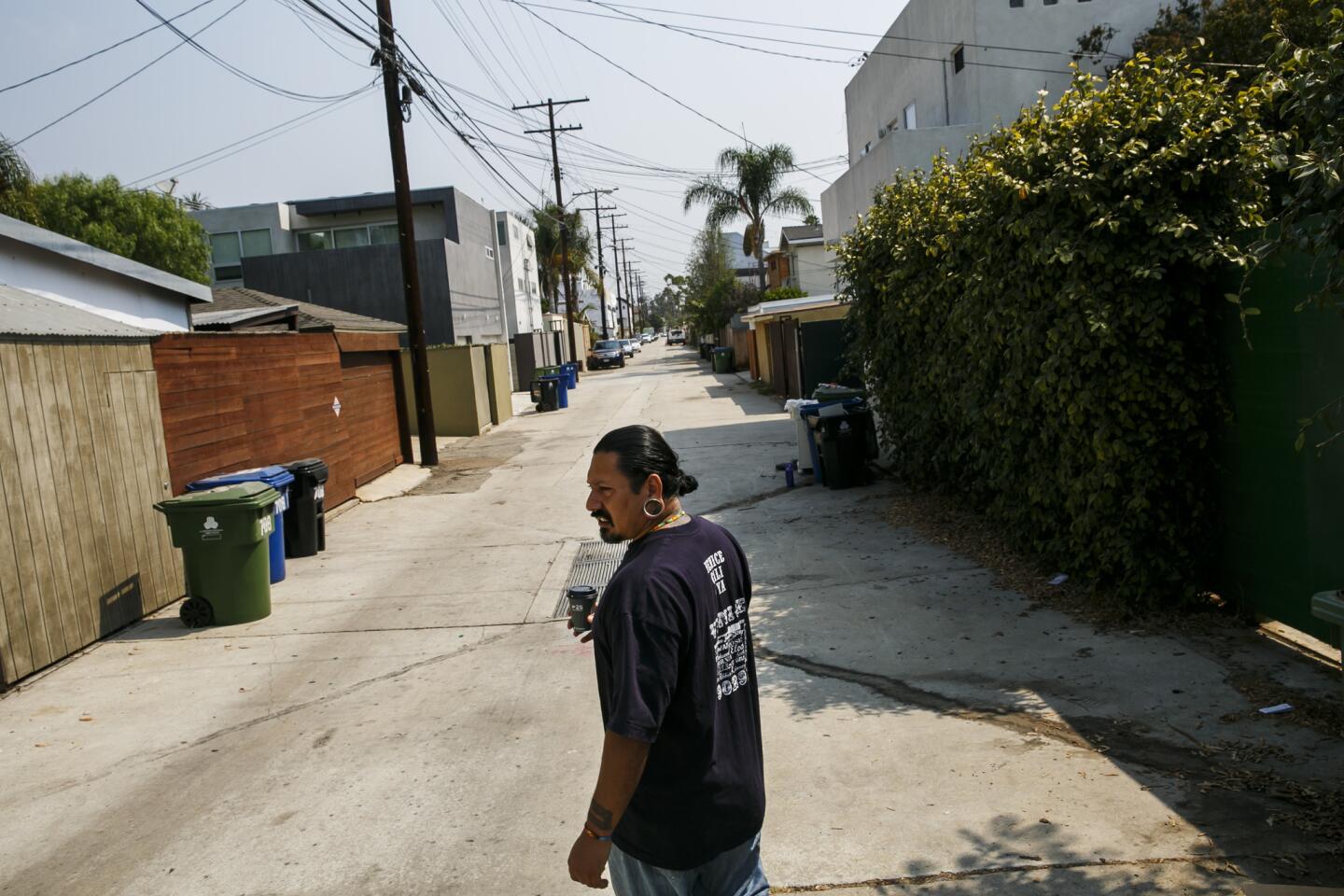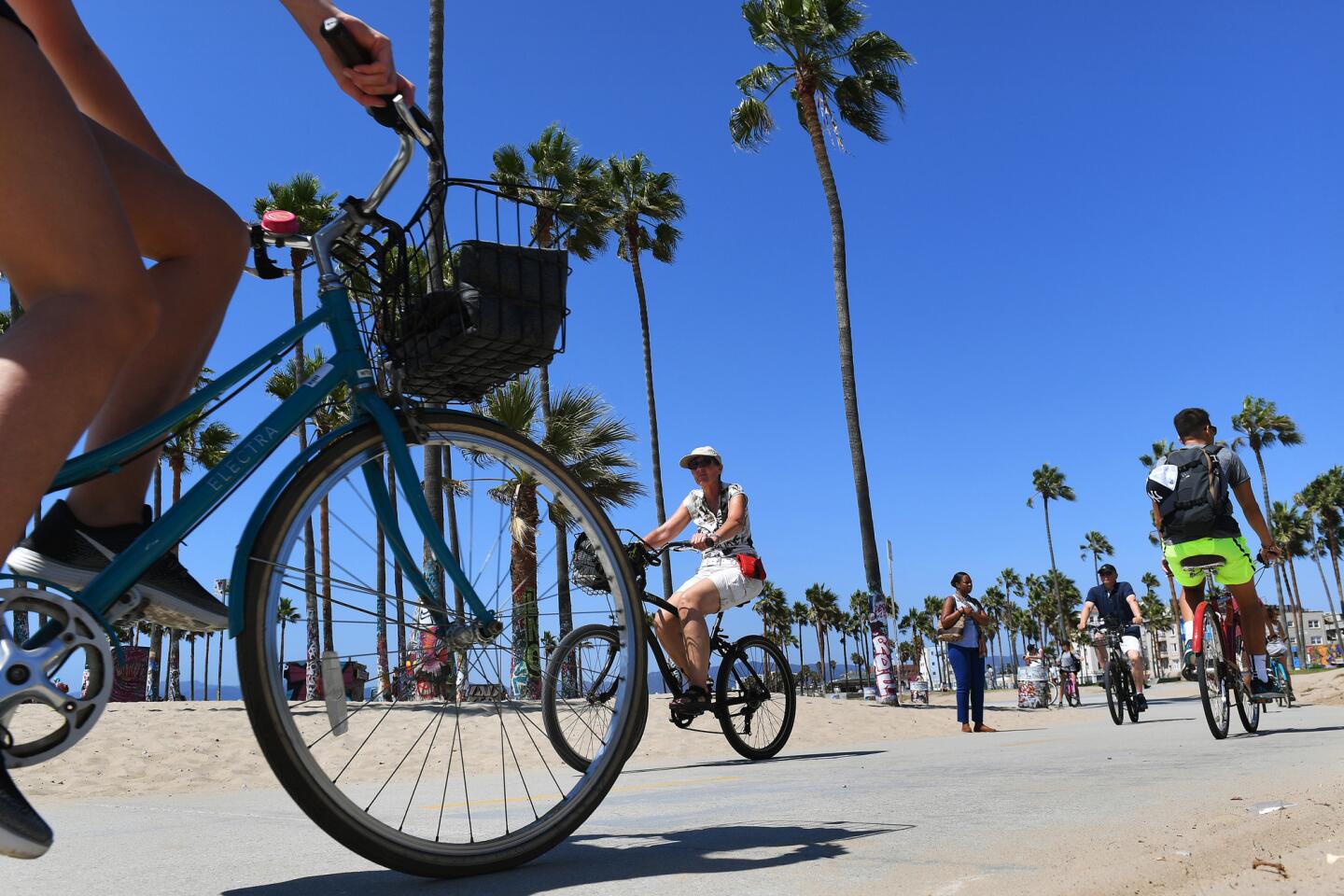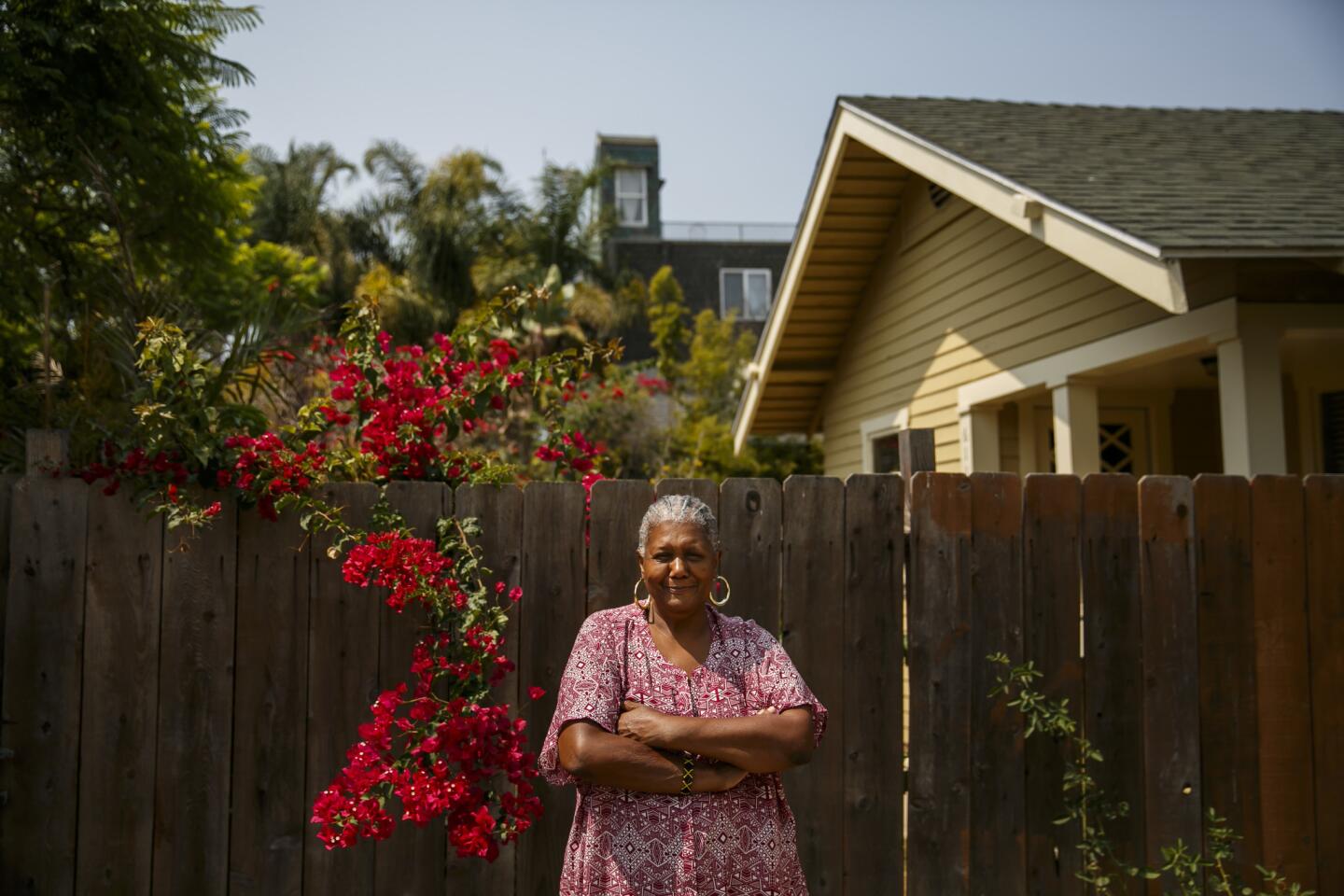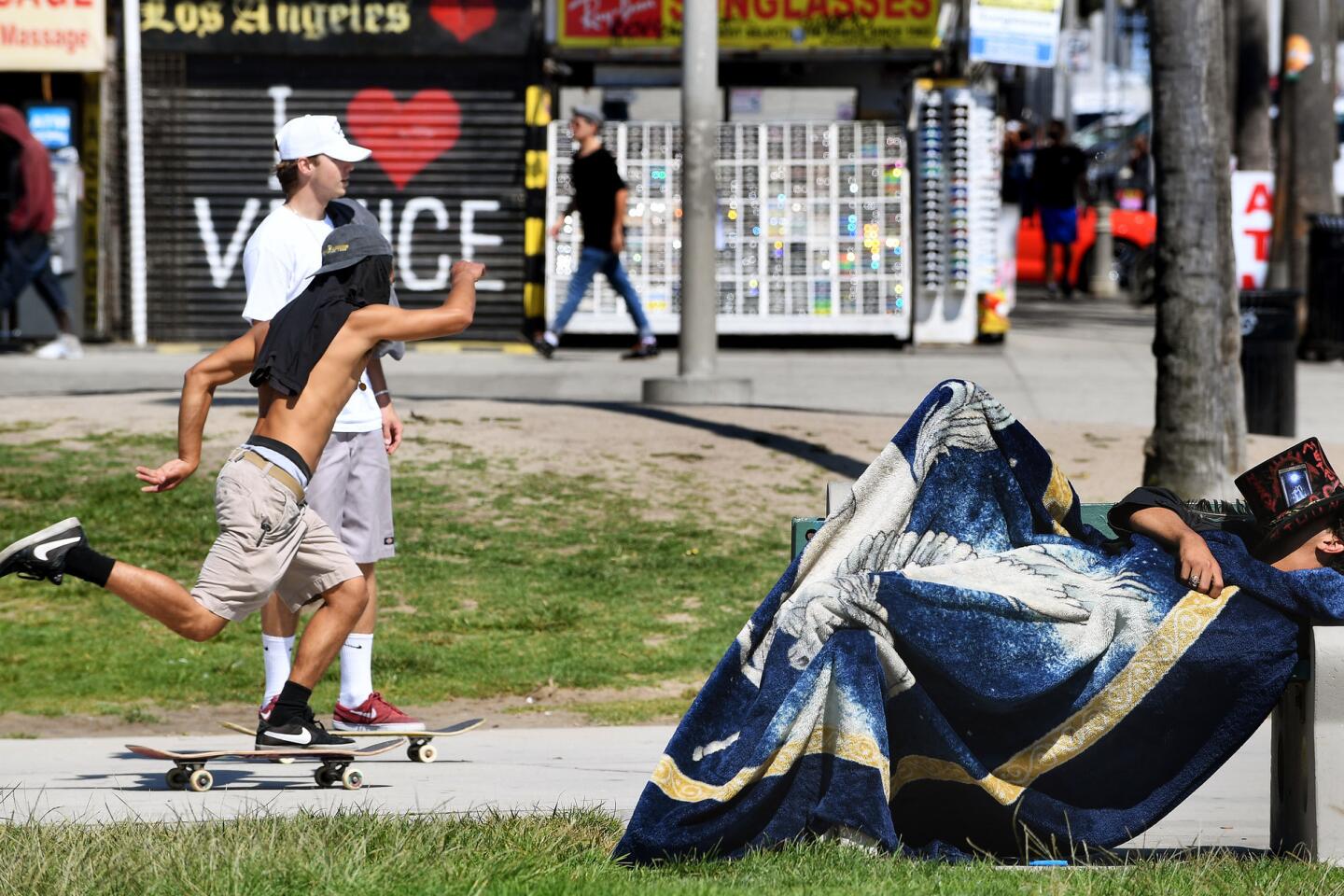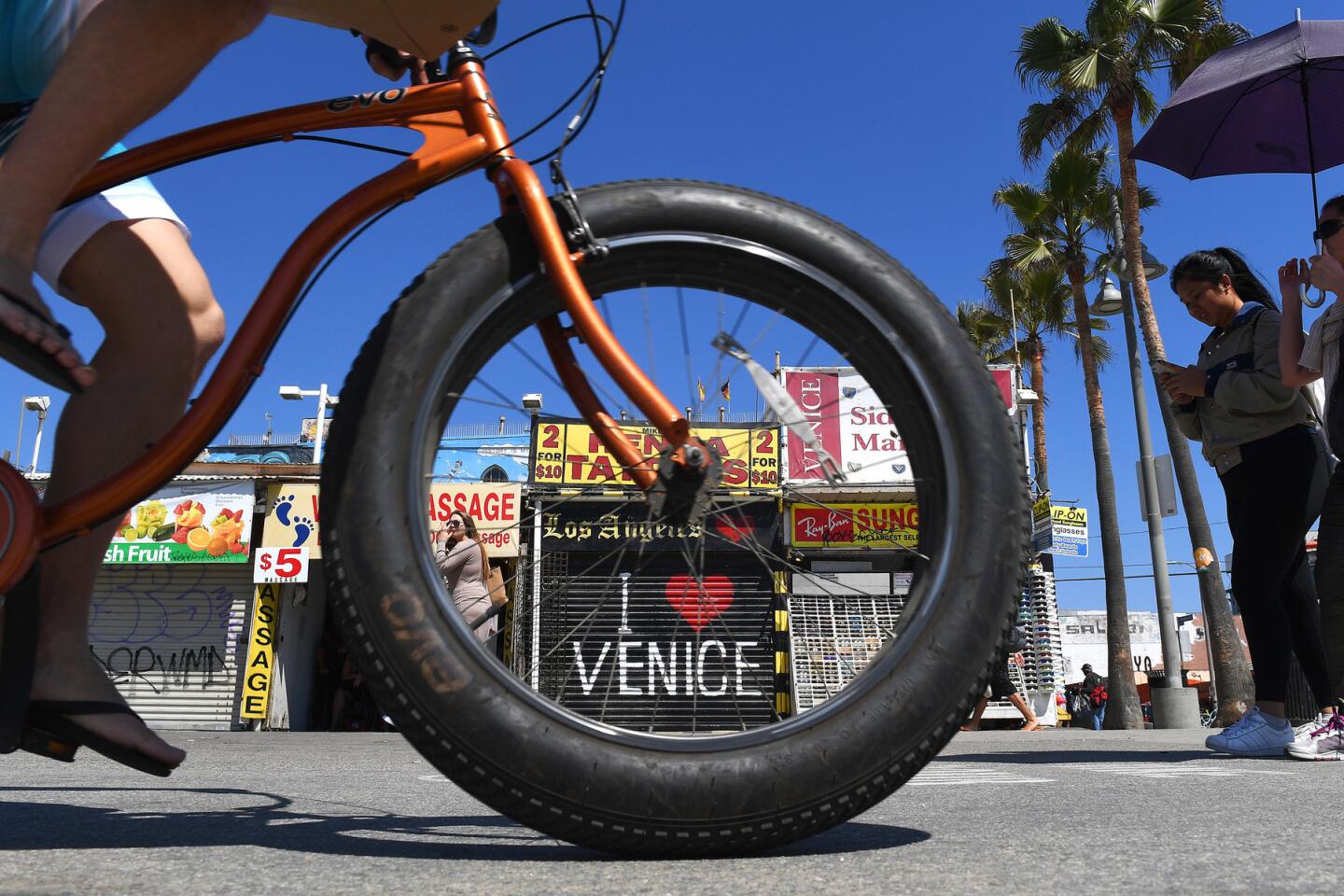As Venice booms, some residents wonder whether L.A. is holding them back
- Share via
There are few places so ingrained in the identity of Los Angeles as Venice — the quirky artistic vibe, the bustling boardwalk and the designer real estate.
For decades, the beach district has served as a cultural touchstone for the larger city, from the days of beatniks, Jim Morrison and the Z-Boys to the upscale Venice of today, with its Silicon Beach money, trendy restaurants and avant-garde homes profiled in architecture magazines.
Now, some Venice residents believe the connection to Los Angeles is holding the neighborhood back and are exploring a cityhood effort that would break free from L.A. government.
Though even backers say secession is a long shot, it has heightened a long-running debate in Venice about the future direction of the community, a reckoning for the once counter-culture stronghold that has grown into an affluent hot spot with some rough edges.
Venice residents speak less of specific issues than a general feeling that City Hall — about 20 miles to the east — isn’t serving their needs and that local government would serve residents better.
Some cityhood supporters look to Santa Monica as a model for an independent government, with its booming shopping district and innovative focus on environmentalism and sustainability. Cityhood skeptics, on the other hand, see their upscale neighbor to the north as exactly what Venice doesn’t want to become.
“If Venice was its own city, it wouldn’t be encumbered by all of Los Angeles’ issues,” said Nick Antonicello, chairman of the ad-hoc neighborhood council committee on cityhood. “There’s a great pride of living here, and I think people believe the services are lacking — whether it’s repaving or public safety.”
“People perceive themselves as Venetian first and Angeleno second,” he added.
The move has been met with mixed reviews. Los Angeles Councilman Mike Bonin, who represents the area, said L.A. and Venice are intensely intertwined.
Venice plays an outsize role in making Los Angeles “the funky and fiercely independent international city that it is,” Bonin said. “I wouldn’t want to imagine one without the other.”
Although supporters say no single issue is driving their desire to look into cityhood, in Venice it’s hard to consider the decision without reflecting on the twin pillars of local political debate: gentrification and homelessness.
People perceive themselves as Venetian first and Angeleno second.
— Nick Antonicello, chairman of an ad-hoc committee on cityhood
Ira Koslow, president of the neighborhood council, said L.A. officials have not done enough to get a handle on Venice’s homeless problem. Venice has long been a magnet for transients, but some residents say the problem has gotten worse in recent years.
Some residents complain that City Hall isn’t dealing with “mansionization” in parts of Venice, where small bungalows are giving way to larger homes they believe are not in sync with the neighborhood’s character.
“In Venice, we really feel like a stepchild,” Koslow said.
As in many parts of Los Angeles, home prices and rents are rising rapidly in Venice, fueled by a new crop of tech companies that have settled in the area.
A Venice armed with its own local government, proponents argue, would be better equipped to solve the growing pains associated with that boom.
But others worry cityhood would only accelerate the forces that are making it harder for working-class residents to stay.
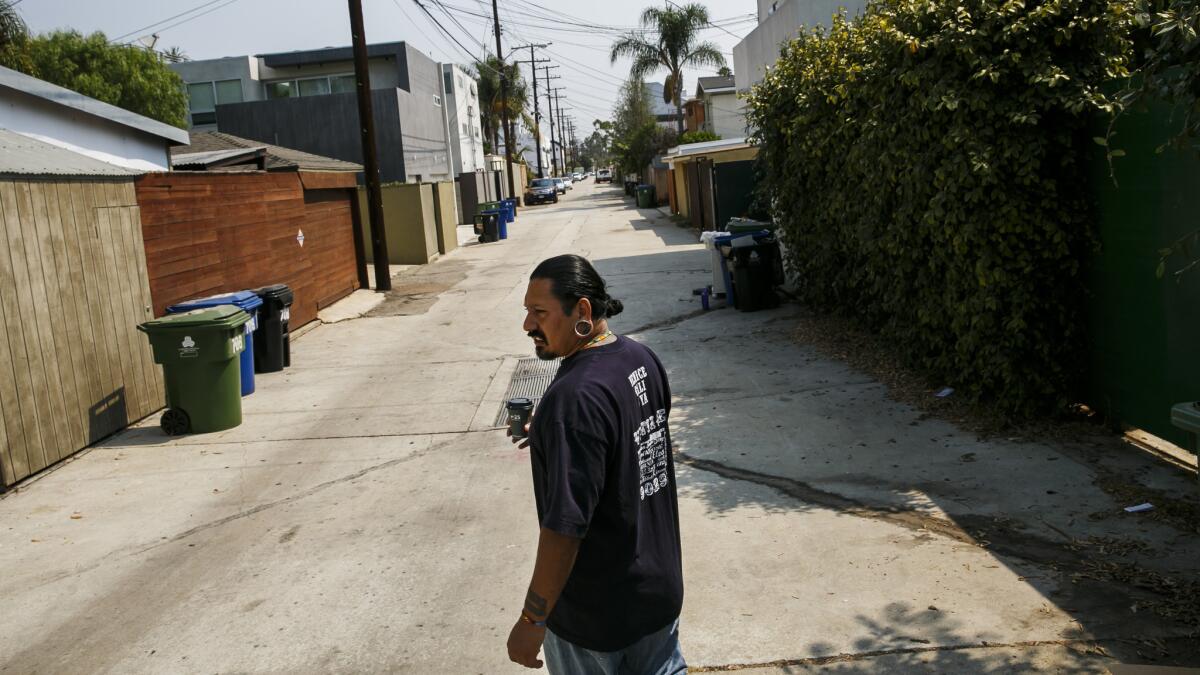
Venice native Mike Bravo has lived in Venice’s Oakwood neighborhood, historically home to a large black and Latino population, for most of his life. Walking past the local park, he points to a new cube-shaped apartment wedged against an older stucco home. Locals call the gray building the mini Nordstrom, he said, because it’s a symbol of the upscale changes here.
Bravo worries about what the government of an independent Venice would look like. He pointed to the 21-member neighborhood council board, with its one Latino, one Asian and no black members in a community that is about 69% white, nearly one-fifth Latino and 5% black, according to census figures.
“When affluent white folks move into an area of that’s predominantly of color, those people get pushed out,” said Bravo, whose family has lived in Oakwood for five generations.
My family built the land they are walking on. I want Venice to be diverse and for everyone.
— Pamela Anderson, 66, Venice resident
Hundreds of black workers built Venice from the ground up at the turn of the 20th century. Abbot Kinney, a tobacco mogul turned real estate developer, saw the marshland there as a ripe location for a “Coney Island of the Pacific.” But it needed a pier, canals and architecture reminiscent of the Italian city from which it got its name.
Blacks who migrated to the area provided the labor. But when Venice was completed in 1905, housing covenants kept them from living in the place they built. Oakwood, at 1.1 square miles, was set aside for them.
For generations, the area retained one of the highest percentage of black residents in West L.A. Pamela Anderson, a lifelong Oakwood resident, still lives in the cream-colored home where she was raised.
Her ancestors were among the first black families to settle into Venice, she said, and she doesn’t trust any effort to turn Venice into a city — no matter how nascent.
“I’m totally against it,” Anderson, 66, said. “They just see the money that can be made. My family built the land they are walking on. I want Venice to be diverse and for everyone.”
Venice was a city until 1926, when, beset by financial problems leading up to the Great Depression, residents voted for the area to be officially annexed by Los Angeles. By the early 1960s, Venice was called the “slum by the sea.” Low rents drew immigrants and counterculture artists. Venice was plagued through the 1990s by gang violence. As crime ebbed, Venice began attracting entertainment executives, sports stars and, later, tech gurus.
If the cityhood movement gains steam, it would mark the first significant secession effort in L.A. since a failed attempt by the San Fernando Valley and Hollywood in 2002.
There are a few paths to seceding from Los Angeles, according to the Local Agency Formation Commission, which approves the formation of cities.
One option is for Venice to detach from the city and become an unincorporated part of L.A. County, like East Los Angeles, said Paul Novak, the commission’s executive officer.
Another, he said, is state legislation that would allow Venice to become its own city.
The third and most likely option, Novak said, is “special reorganization” — a two- to three-year process that would come down to mandatory voter approval by both Venice and the city of L.A.
“It’s a long and winding road, and there’s a lot of legislative and bureaucratic obstacles for something like this to occur,” Antonicello said of secession. “But I wanted it to be on the record that people can see if this is an option.”
Bonin said he is “eager” to hear out the neighborhood council on cityhood and other issues, but his focus is on tackling some of the “biggest concerns for the neighborhood,” including the 18-part plan to combat and prevent homelessness he proposed earlier this year.
Cityhood only makes sense on the surface, argued resident Raphael “Spud” Anderson.
“On paper, it seems like a great idea,” Anderson, 57, said. “I agree the city is lackluster when it comes to keeping up with Venice being one of the county’s top tourist attractions.”
But the solution, Anderson said, was for the L.A. City Council to be more responsive to Venice — not secession.
“If the City Council would listen to the people,” he said, “then cityhood talk would evaporate.”
Times staff writer Sandra Poindexter contributed to this article.
For more California news follow me on Twitter: @sarahparvini
ALSO
Life after Scientology is contentious for church leader’s father
More to Read
Sign up for Essential California
The most important California stories and recommendations in your inbox every morning.
You may occasionally receive promotional content from the Los Angeles Times.
